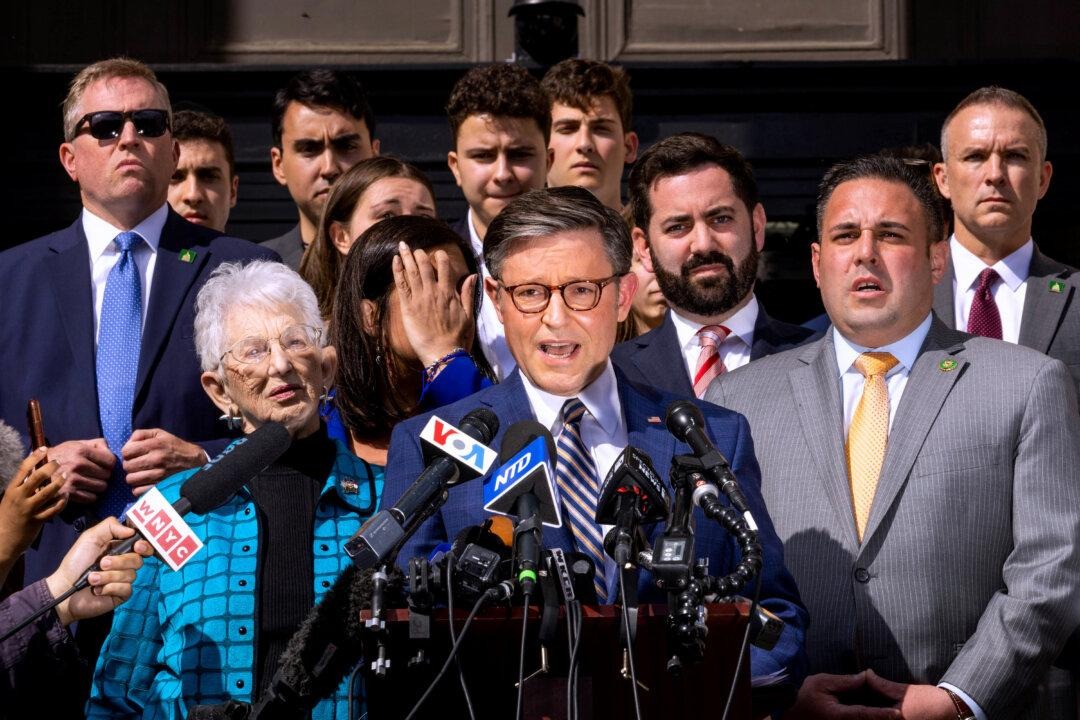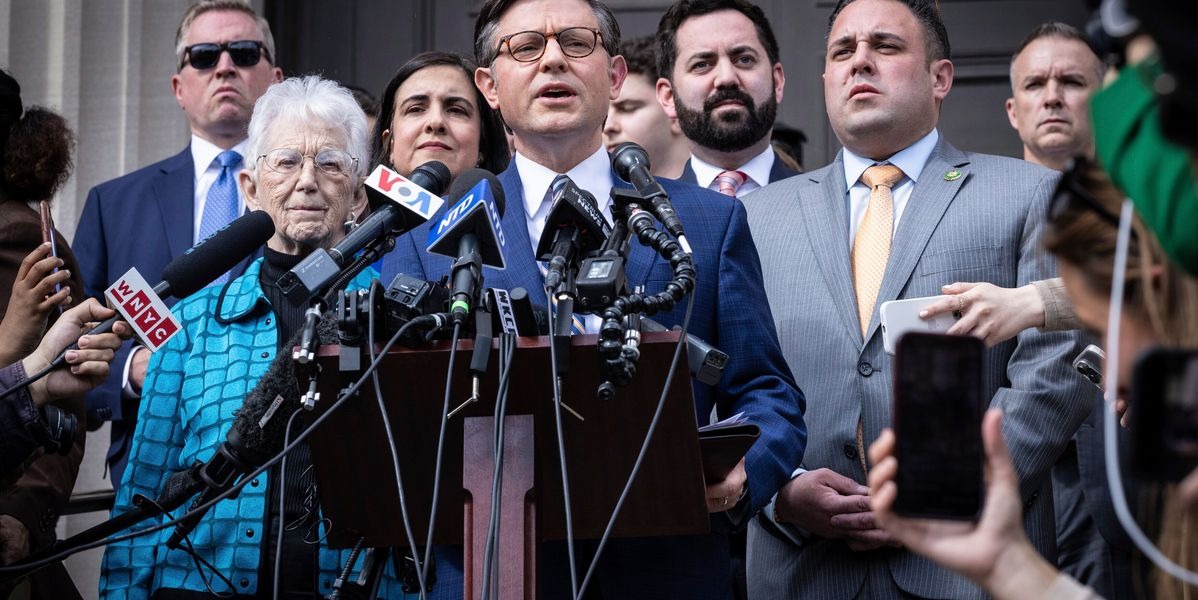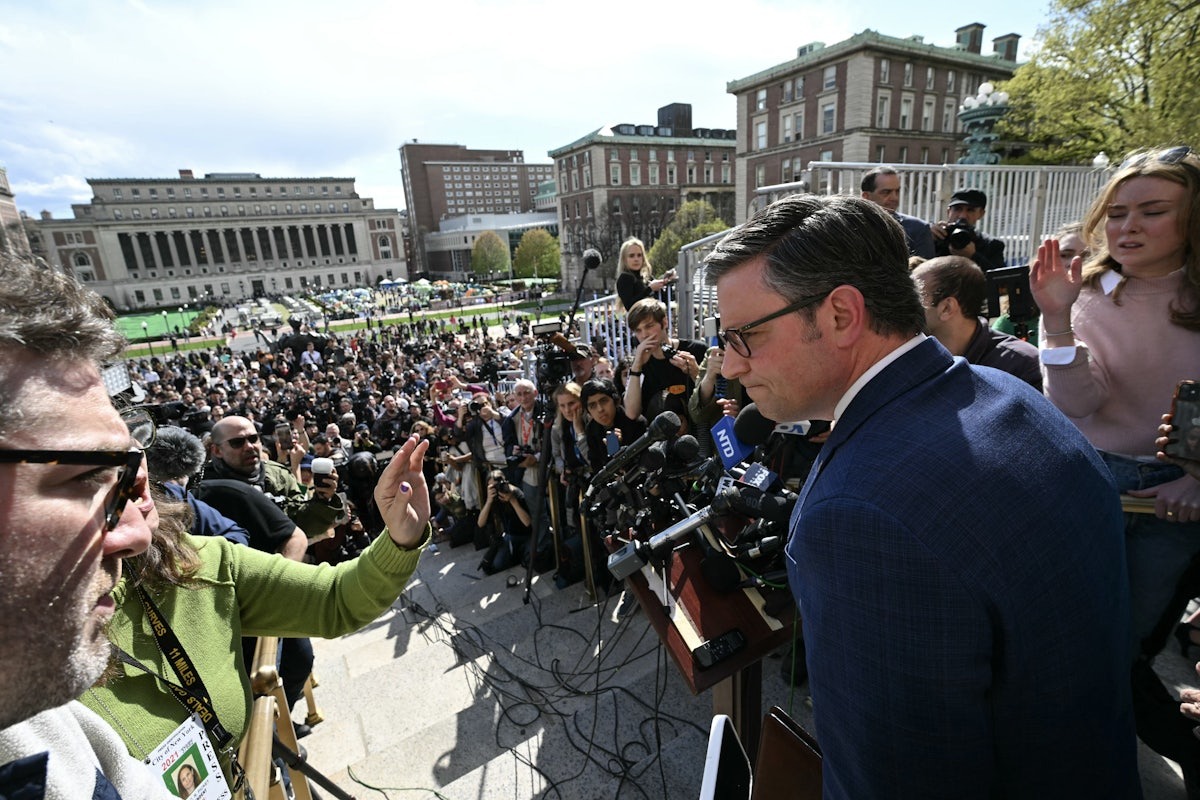In the middle of the ongoing pro-Palestine protests at Columbia University, Speaker Mike Johnson (R-La.) has announced his plans to visit the campus on Wednesday to meet with Jewish students.
These protests have garnered national attention as hundreds of students continue to occupy the university’s grounds, voicing their concerns over the Biden administration’s response to the Israel-Hamas conflict.

Speaker Johnson (Credits: The Epoch Times)
The demonstrators are advocating for a cease-fire in the conflict, urging Congress to halt military aid to Israel, and calling for Columbia University to divest from companies with ties to Israel while demanding increased financial transparency.
Despite over 100 protesters being arrested last Friday at the university’s direction, the protests have only escalated since then, spreading to other college campuses across the nation.
During his visit, Speaker Johnson intends to discuss what he perceives as the troubling rise of virulent antisemitism on American college campuses. His visit follows a similar one by a group of four Jewish Democrats on Monday, who also met with Jewish students.
Representative Josh Gottheimer (D-N.J.) emphasized the importance of ensuring Jewish students’ safety and well-being on campus, warning that the university’s leadership must act swiftly to address the situation or face consequences from Congress.

Speaker Mike Johnson (Credits: Yahoo News Canada)
New York Governor Kathy Hochul (D) also visited the campus on Monday to denounce the protests, echoing concerns about the demonstrations being blatantly antisemitic. Additionally, a White House statement issued on Sunday expressed similar sentiments, condemning any form of hate or bigotry.
It’s noteworthy that a remarkable portion of the protesters are Jewish, with some even organizing a Passover Seder as part of their demonstration. Despite assertions from protest leaders rejecting claims of promoting violence or antisemitism, tensions remain high on campus.
In response to criticisms of the university’s administration, Columbia President Minouche Shafik expressed deep sadness over the protests and emphasized the need for dialogue and compromise to address the ongoing conflict and tensions on campus.























